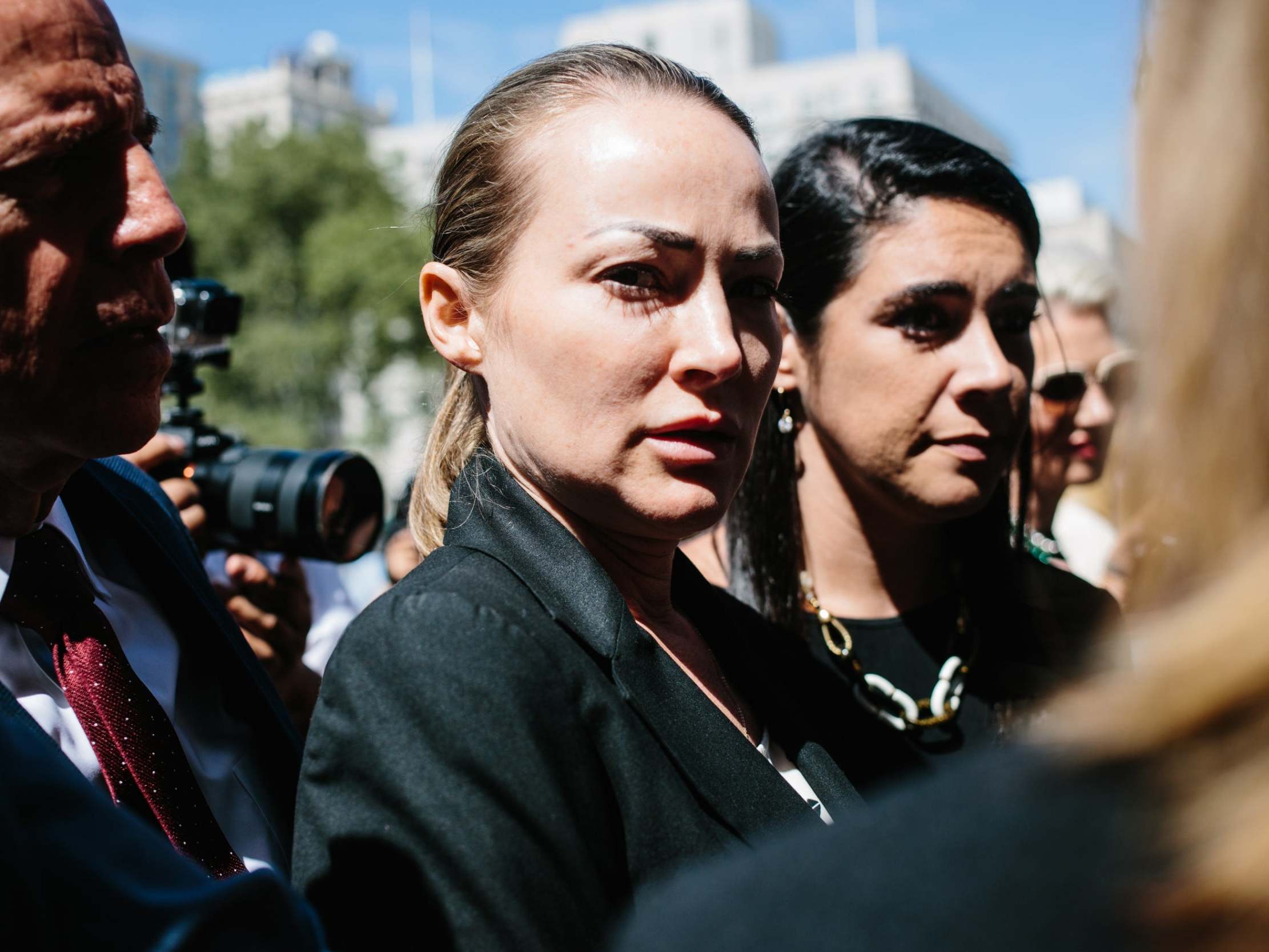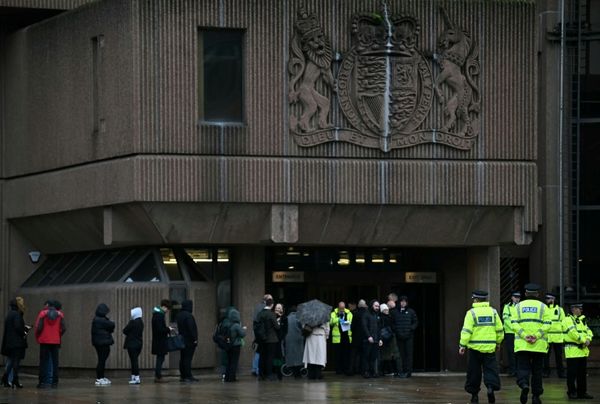One by one, the women stood in court, fighting back tears as they described how Jeffrey Epstein coerced and abused them, and - to the end - avoided efforts to bring him to justice.
The women would have preferred a trial. But because Epstein, a politically connected multimillionaire, killed himself in federal custody this month, authorities said, they got only this: a three-hour hearing, convened ostensibly so a judge could weigh prosecutors' request to drop the sex-trafficking charges brought against the jet-setting financier.
For those who say he abused them, there will be no final face-to-face confrontation. For Epstein, there will be no evaluation of the evidence by his peers.
There will be continued civil litigation. At least six of those who say they were victimised by Epstein have joined lawsuits against his estate, and representatives for others say they plan to make similar efforts, although the scope is unclear.
Prosecutors also sought to assure the women that the investigation into those who might have aided Epstein would continue.
But Judge Richard Berman said at the outset the obvious yet painful truth: "Mr. Epstein's death obviously means that a trial in which he is a defendant cannot take place."
Instead, Berman provided a venue for the women to share their stories with each other and the world - some publicly for the first time, others retelling the now familiar horrors they endured in hopes of some bit of catharsis.
"He could not begin to fathom what he took from us, and I say 'us' because I am every girl he did this to, and they're all me," said actress Anouska De Georgiou, who alleged Epstein coerced and sexually abused her as a girl.
"I'm glad to be part of a group of women who are now bonded forever in the trauma that we endured at the hands of this man."
The women's stories were chillingly similar. Epstein, they said, manipulated them and the system that was supposed to hold him accountable, and the effects of his abuse would remain after his death.
"The fact I will never have a chance to face my predator in court eats away at my soul," said Jennifer Araoz, fighting through tears. "Even in death, Epstein is trying to hurt me."
Chauntae Davies, who told the court she was recruited to be a masseuse for Epstein, graphically described being raped by the financier over several years and how she has felt enduring effects throughout her life.
"I've suffered, and he has won," Ms Davies said. "Every job offer that's been offered to me and then retracted because of my connection to this case - I have suffered, and he has won. Every public humiliation I have endured - I have suffered, and he has won."

While Ms Davies said Epstein's death had robbed her of justice, she would not let the pain silence her.
"I refuse to let this man win in death," she said. "I couldn't fight back when Jeffrey Epstein sexually abused me because I hadn't yet found my voice. Well, I have found my voice now, and while Jeffrey may no longer be here to hear it, I will not stop fighting, and I will not be silenced anymore."
Courtney Wild, who said Epstein sexually abused her when she was 14 years old and who was the first to speak Tuesday, said Epstein had "robbed myself and all the other victims of our day in court to confront him one by one."
"And for that," she said, "he is a coward."
More than one woman implored prosecutors to continue pursuing those who aided Epstein, identifying by name, for example, associate Ghislaine Maxwell. She has not been charged and has denied wrongdoing, but she has been accused of serving as a sort of madam for Epstein.
"The reckoning must not end. It must continue," said Virginia Roberts Giuffre, who sued Maxwell in 2015. "He did not act alone. We the victims know that."
Added Sarah Ransome, another alleged victim: "Please, please finish what you have started."
An attorney for Ms Maxwell did not immediately respond to a request for comment.
In total, 16 women spoke in court, 10 whom identified themselves by name, others who were referred to only as "Jane Doe." Others had their attorneys read statements.
Marijke Chartouni, who said Epstein assaulted her at his Manhattan home, said she "decided to come forward to be a voice to the victims who may not be able to tell their story, or at least not yet."

Theresa Helm said it was "time to bring light to that darkness, and it's time to replace that darkness with light."
"I note today I do feel respected and listened to," she said.
Mr Berman, the judge, could have issued a simple written order dismissing the case to avoid the hearing entirely, but instead he asked prosecutors and defense lawyers to appear in court Tuesday so that they and those who say Epstein abused them could "be heard, if they wish to be."
Mr Berman said the news of Epstein's death was "certainly shocking," as everyone was expecting proceedings "through which the accusers and the accused would come face to face, allowing everyone to get their day in court."
"It is a rather stunning turn of events," Berman said.
Prosecutors had arrested Epstein, 66, in July and charged him with sex trafficking, subjecting him to a possible trial and 45-year sentence if he were convicted. He had pleaded not guilty. Mr Berman had ordered that he be jailed pending trial, although Epstein was appealing that decision.
On the morning of August 10, staff at the Metropolitan Correctional Center in Manhattan found Epstein hanging in his cell. He was taken to a hospital, where he was pronounced dead.
Authorities called the death an "apparent suicide" and launched investigations - including by the FBI and the Justice Department's inspector general - into what had happened.
Reid Weingarten, one of Epstein's attorneys, asked Berman on Tuesday to conduct an independent inquiry into Epstein's death.
Defense attorneys said that they were sceptical of the New York City medical examiner's conclusion that Epstein died by suicide and that their own medical examiner believed there was some evidence to suggest otherwise.
They said that their medical examiner believed Epstein was dead for 45 minutes before he was found - raising questions about efforts to resuscitate him - and that his injuries could suggest homicide.
They also pointed to apparently faulty video footage of the hallway outside of Epstein's cell that they had been told was being evaluated by the FBI.
One of Epstein's defence attorneys said the medical examiner had informed a family representative that "the principal video that would have showed the whole hall was corrupted," but that officials were able to view "video which was on a stairwell between floors" at the jail.
The Washington Post reported on Monday that at least one camera in the hallway outside the cell where Epstein was found had footage that was unusable, although other clearer footage was captured in the area.
That was not the only irregularity at the jail. Epstein had been put on suicide watch after he was found in his cell with marks on his neck on July 23. After he was removed from suicide watch about a week later, he was required to have a cellmate.
But that person was transferred out the day before Epstein was found, and no one was assigned to replace him - despite the fact that at least eight jail officials knew Epstein was not to be left alone in a cell.
Officers also were required to check on Epstein every 30 minutes but had not done so for several hours before he was found, officials have said.
The two officers assigned to the special housing unit where Epstein was being held were both on overtime - one forced, the other voluntary, officials have said. One did not normally work as a correctional officer but had in the past and was able to do so, officials have said.
Epstein's case attracted so much attention in part because in 2008, he reached a deal with federal prosecutors to resolve similar allegations of abuse and spent 13 months in jail - with work-release privileges.
The arrangement was widely criticised as overly lenient and ultimately prompted the resignation of President Donald Trump's labour secretary, Alex Acosta, who was the US attorney in Miami when the deal was approved.
Federal prosecutors in New York have said that they are still investigating those who might have conspired with Epstein and that it is possible other charges could be brought.
Assistant US Attorney Maurene Comey told the court Tuesday that charges against potential co-conspirators and civil forfeiture of Epstein's assets are still possible, and that the government's investigation will continue.
"This dismissal in no way lessens the government's resolve," Ms Comey said.
The Washington Post







